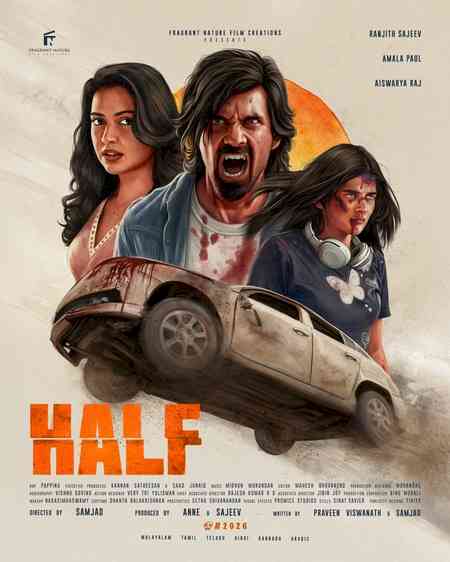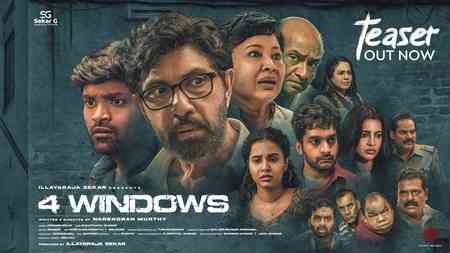B-Town: While cinemas offer sops, OTT platforms get aggressive
The film industry has lost its exclusivity. Now, what we have is a mammoth entertainment industry. And the film trade is just a part of this industry. The way the equations are changing, filmmaking, distributing and exhibition may end up becoming the smaller part of the entertainment industry.

Vinod Mirani
Mumbai, March 24 (IANS) The film industry has lost its exclusivity. Now, what we have is a mammoth entertainment industry. And the film trade is just a part of this industry. The way the equations are changing, filmmaking, distributing and exhibition may end up becoming the smaller part of the entertainment industry.
That is not to say that film production will suffer. Far from it, production activity will only mushroom. What producers will be making will be called 'Content'. Because, whenever they plan a project, OTT platforms will remain important for them. And the content will come in various forms: episodic serialisation or web series, feature-length films, shorts, and so on.
So, many aspiring filmmakers who could not even dream of making a feature film, now do the same but call it 'content'.
Can you imagine that once upon a time, cinema owners in towns considered any other means of entertainment around them to be an 'opposition'? In those days, a distributor whose film was being screened in any town would get a Daily Collection Report (DCR) and prominently listed on top of this report sheet were the 'oppositions' to this particular film.
The report listed not only the other films showing in cinemas, but also the local circus, magic shows, plays and so on! They were considered to be competition that could affect a film's collections.
Initially, there were films and there was radio. And radio complemented the film business. Radio helped film music become popular, which in turn served as a draw for a film. That was an era when viewers would watch a film if they loved the music.
But then came television, which many called the idiot box!
Today, the film business is at its nadir, thanks to the 'idiot box' and the avenues it created over a period. What made television tick? Who fed it content? The filmmakers, the film industry itself.
What was the USP of Doordarshan? The Sunday feature film, Saturday night award-winning film, or the Adult-certified film, and, most of all, film-based programmes such as Chhayageet or Chitrahar.
Then of course the video format started making a dent on the box office, with video piracy hurting the most. Then came satellite television film channels, another parasite feeding off the film industry. Every producer felt blessed selling satellite rights, thinking it was an extra buck.
But this spelt the end of repeat runs of films as well as 16mm business. Many cinemas in commercial areas screened matinee shows of old-time classics as their first show of the day and young people would throng the cinemas. This was followed by the screening of a new film rolled out in three shows a day.
That morning screening was called a matinee show and the tickets cost much less than the regular shows. That is how some stars came to be known as matinees idols; their repeat films drew maximum footfalls.
This was just the beginning.
The film industry was creating its own rivals because all those outlets providing small-screen or home entertainment were fed by cinema.
Now, we have OTT platforms, and, like radio, they can again be considered a part of the industry. They complement the business of making films. Initially, the OTT platforms bought films and added to the revenue of production houses without eating into their rights.
What these OTT platforms are doing now is that they are partnering with film and content makers. That is because, for one thing, these platforms did not have enough Indian content, and second, because the cinemas, in their new multiplex version, were greedy. That greed of cinema managements has made things easier for the OTT platforms to add to their subscriber base.
But, now, the OTT platforms have decided to take a more aggressive stance.
Some time back, Netflix announced a slate of 24 new projects. In the past week, Amazon Prime Video rolled out a bigger slate of 69 new projects for 2024.
It will include sanctioned as well as licensed products. Besides the sequels to its serials, such as 'Panchayat', 'Mirzapur', 'Pataal Lok', 'Bandissh Bandits', 'Suzhal - The Vortex, and so on, there are several big banner films.
What is amazing to note is that the sequels to major theatrical hits like 'Don' (three), 'Housefull' (five) and 'Baaghi' (four) have been acquired well in advance by Prime Video!
The stars on its roster include the likes of Shahid Kapoor, Varun Dhawan, Anil Kapoor, Abhishek Bachchan, Ranvir Singh, Tiger Shroff, Siddharth Malhotra, Vicky Kaushal, Akshay Kumar, Riteish Deshmukh, Ajay Devgn, Rajkummar Rao, Ram Charan and Pawan Kalyan, along with Nushratt Bharucha, Kriti Sanon, Triptii Dimri, Shraddha Kapoor, and so on.
The preference seems to be for successful sequels for obvious reasons.
Not to be left out, Jio Cinema, which has taken over Hotstar, is expected to make major announcements in April.
The highlight of all this outsourcing of content made by Netflix, Amazon Prime Video, and more from Jio-Disney+Hotsar, is that they all engage well-known names, the regular filmmakers. You name one and he or she is making content for OTT.
So, what are the cinema managements doing? Making valiant efforts to stay afloat. The multiplex way of doing business has been an important factor in destroying the cinema business.
With admission rates ranging from Rs 200 to Rs 2,000-plus, who are you catering to?
Everybody who is in any kind of business is here because India has such a large consumer base. Take the example of mobile phone data pricing. The tariff started at Rs 16 a minute and few dared to buy a cell phone. Today, mobile data costs less than peanuts and it would be rare to find someone who does not own a phone!
Likewise, take the example of airplane travel. It was a dream for many to sit in an airplane. Today, all airports are crowded and the airlines had to go ahead and order about 1,000 new airplanes!
What our multiplexes did was the opposite. They decided to set admission rates so high that the masses would not even dream of stepping into their cinemas. And, to think that once upon a time, these masses were the ones who thronged the halls from first day first show.
What today's exhibition trade is doing is the same thing. Your admission rates cater to the elite, in this case, not the intellectual elite, but the moneyed kind.
You had an open run, denied playtime to films, dictated terms, and claimed a bigger share in box office collections than the filmmaker. Today, you have been reduced to offering packages or celebrating 'cinema days' with concessional rates.
You had a cinema day once in October, then you had a cinema lovers' day more recently. Then, in August last year, you offered 10 movies for Rs 600. Now, you have created a package of four movies for Rs 349, except during weekends. But where are the films worth watching? Where are the footfalls?
Instead, of making all these offers with no takers, doesn't it make more sense to just rationalise admission rates on the same scale as your offers. Why not go for volumes and make bigger box-office collections. That, as many others have realised, is the way to do business in India. You will get your audience back! Alterntively, OTT platforms will become bigger draws than the cinema theatre.
--IANS
vinod/srb



 IANS
IANS 










